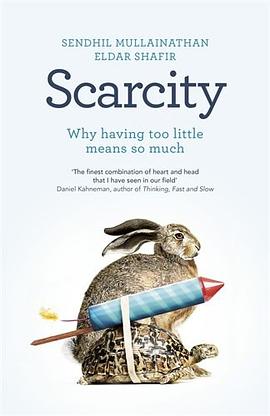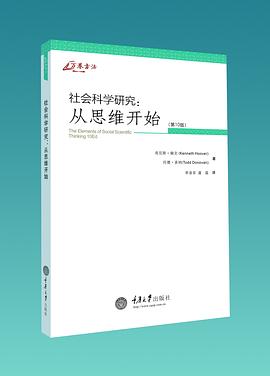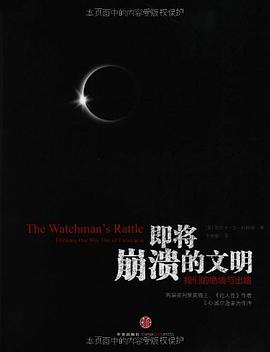
具体描述
A surprising and intriguing examination of how scarcity—and our flawed responses to it—shapes our lives, our society, and our culture
Why do successful people get things done at the last minute? Why does poverty persist? Why do organizations get stuck firefighting? Why do the lonely find it hard to make friends? These questions seem unconnected, yet Sendhil Mullainathan and Eldar Shafir show that they are all are examples of a mind-set produced by scarcity.
Drawing on cutting-edge research from behavioral science and economics, Mullainathan and Shafir show that scarcity creates a similar psychology for everyone struggling to manage with less than they need. Busy people fail to manage their time efficiently for the same reasons the poor and those maxed out on credit cards fail to manage their money. The dynamics of scarcity reveal why dieters find it hard to resist temptation, why students and busy executives mismanage their time, and why sugarcane farmers are smarter after harvest than before. Once we start thinking in terms of scarcity and the strategies it imposes, the problems of modern life come into sharper focus.
Mullainathan and Shafir discuss how scarcity affects our daily lives, recounting anecdotes of their own foibles and making surprising connections that bring this research alive. Their book provides a new way of understanding why the poor stay poor and the busy stay busy, and it reveals not only how scarcity leads us astray but also how individuals and organizations can better manage scarcity for greater satisfaction and success.
作者简介
Sendhil Mullainathan is Professor of Economics at Harvard University. His real passion is behavioral economics, understanding what makes people tick - whether a senior executive in New York or a farmer in rural Tamil Nadu.
He enjoys having written but is of a mixed mind about writing.
He also occasionally enjoys doing: he helped co-found a non-profit to apply behavioral science (ideas42); and has worked in government.
Much to the surprise of who know him well, he is a recipient of the MacArthur "genius" award.
His hobbies include basketball, googling and fixing-up classic espresso machines. He also enjoys speaking about himself in the third person, which works well for bios but less well in daily life.
Eldar Shafir is an American psychologist, and the author of Scarcity: Why Having Too Little Means So Much[1] (with Sendhil Mullainathan). He is the William Stewart Tod Professor of Psychology and Public Affairs at Princeton University Department of Psychology and the Woodrow Wilson School of Public and International Affairs. He is a Faculty Associate at the Institute for Quantitative Social Science at Harvard University. He is co-founder and Scientific Director at ideas42, a social-science R&D lab. His area of study is behavioral economics, that is, how the decisions people make affect their financial outcomes. His research has led him to the general conclusion that people often make inadvisable decisions on financial matters when they think they are being rational.
目录信息
Chap. 1 - The good: scarcity can cause focus. The bad: focus can mean inattention to other things.
Chap. 2 - Scarcity causes an internal disruption that makes it harder to make good decisions.
Chap. 3 - Slack (the opposite of scarcity) allows better choices and reduces the bad consequences of failiure.
Chap. 4 - Poor people are sometimes more realistic about estimating costs, because they have to be.
Chap. 5 - Borrowing when you're short of cash leads to a descending spiral of debt.
Chap. 6 & 7 - Poverty is a vicious circle of scarcity leading to bad decisions leading to scarcity...
Chap. 8 - Poverty can be alleviated by creating slack, such as extra cash or day care to create more time.
Chap. 9 - Efficient use of resources and division of labor helps organizations become more efficient.
Chap. 10 - Efficient use of self-control helps with life issues.
· · · · · · (收起)
读后感
看到有人评论这本书说的全是一些正确的废话——不能同意更多。完全就是在展示作者对案例研究和所谓“提炼”的能力,如果说有用,那就是作者的研究方式是不错的,同时把那些正确的东西又展示了一遍。 整本书读下来不是很舒服,可能和翻译也有较大关系,“余闲”、“管窥”、“识...
评分核心概念: 1、稀缺:拥有少于需要的感觉。 2、带宽:包括两种能力,分别是认知能力(分析、判断、逻辑推理...)和执行控制力(控制行为、控制情绪)。我的理解,就是精力。 3、专注红利:由于稀缺心态,我们会尽力完成事件而带来的积极成果。 4、管窥:专注于某一事物就意味着...
评分通常的解释是,因为蠢,所以赚钱能力差;因为懒,所以不能吃苦耐劳。两者相加导致穷,副产品是胖,因为意志力薄弱放纵食欲。 任何问题都不会只有一种正确的解释。《稀缺》提出了一个新观点:有没有可能是贫穷(稀缺)本身削弱了智力和意志力,进而加剧了贫穷(稀缺)?这有点...
评分//2015-07-08 10:12 <稀缺-我们是如何陷入贫穷与忙碌的> 摘要 这本书分析了稀缺的内在来源和所造成的影响,列举了许多例子,下面我把它的核心思想记录一下: [ 稀缺心态是一切稀缺的根源。 资源稀缺并不可怕,就怕有稀缺心态(以后简称'稀缺')。 稀缺的定义:稀缺,是"...
评分//2015-07-08 10:12 <稀缺-我们是如何陷入贫穷与忙碌的> 摘要 这本书分析了稀缺的内在来源和所造成的影响,列举了许多例子,下面我把它的核心思想记录一下: [ 稀缺心态是一切稀缺的根源。 资源稀缺并不可怕,就怕有稀缺心态(以后简称'稀缺')。 稀缺的定义:稀缺,是"...
用户评价
A bit repetitive here and there, but overall a fascinating read.
评分我觉得作者就几个概念反复论证涵盖了整本书:Scarcity虽然说双刃剑(让人更专注而有效率但也使得人目光短缺做出不明智的选择);所谓的bandwidth无非就是cognitive capacity;要明白人思考的轨迹而分析现实中的原委以此来改善制度与规则。#就这些为什么要写满一本书啊
评分Manage our bandwidth like we try managing time.
评分经济上的贫困往往伴随时间与精力上的贫困
评分前期滥用资源→_→稀缺性→_→过于注意→_→带宽限制→_→进一步的循环
相关图书
本站所有内容均为互联网搜索引擎提供的公开搜索信息,本站不存储任何数据与内容,任何内容与数据均与本站无关,如有需要请联系相关搜索引擎包括但不限于百度,google,bing,sogou 等
© 2025 qciss.net All Rights Reserved. 小哈图书下载中心 版权所有





















